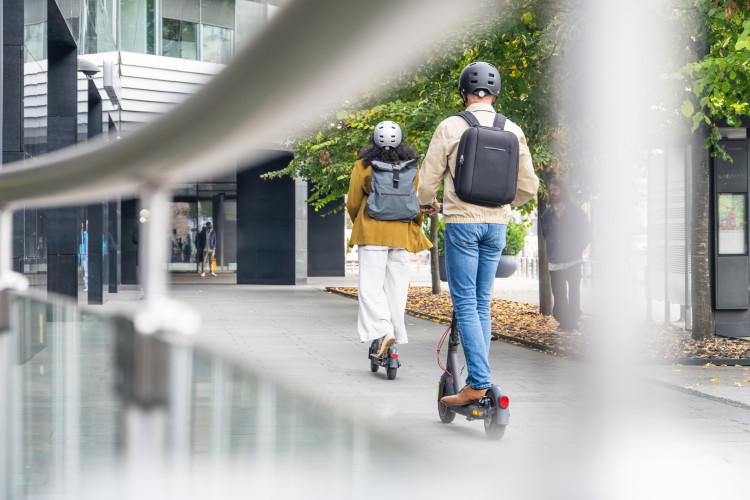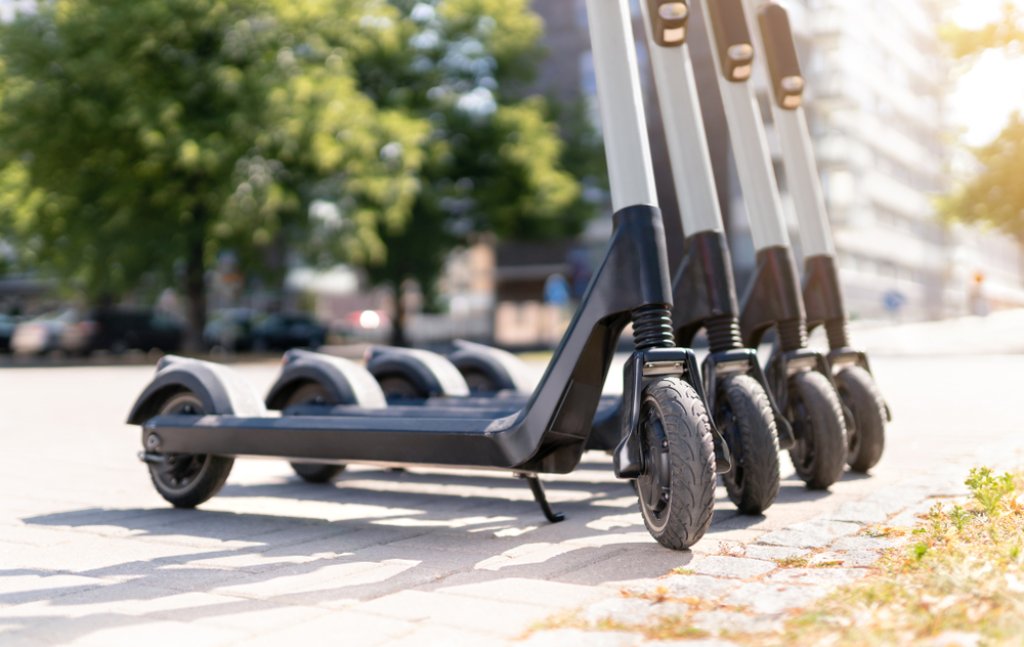Shared e-scooter schemes look like they may be finally coming to Ireland soon - but will operators be able to meet the strict criteria?
On the 27th of June 2023, President Michael D. Higgins signed the Road Traffic and Roads Act 2023 into law, which paved the way to legalising e-scooters on public roads. Before they could become fully legal, secondary legislation governing the classification and use of e-scooters first needed to be finalised. Over the past nine months, the approval of this secondary legislation has been ongoing and now looks set to be concluded in the coming weeks.
This secondary legislation creates a new vehicle category - Powered Personal Transporters (PPT) – that do not require vehicle registration, motor tax, insurance or a driving licence. Somewhat controversially, the PPT category includes a maximum speed limit of 20km/h with a maximum power output of 400 Watts and a maximum weight - including batteries - of 25kg.
Since 2021, when this new legislation was first proposed, many have heralded the moment when e-scooter sharing schemes would finally launch in Ireland. However after many false dawns, we still appear to be some way from Irish commuters to avail of shared e-scooter schemes.
So what’s next?
In the coming weeks, the Department of Transport will issue guidelines to local authorities providing practical information on implementing shared e-scooter schemes. Given that bye-laws first need to be drafted and approved by councillors, tenders will likely not be published before Autumn 2024 at the earliest. Therefore it’s likely to be another year before we see shared e-scooter schemes here.
Before we see e-scooter sharing schemes up and running, operators ultimately need to be interested in launching in Irish towns and cities. Here the criteria for PPTs, in particular the 25kg weight limit, will be pivotal.
What are operators saying?
Over the past few weeks, Hanover spoke to a number of e-scooter companies who are considering launching in Ireland. We wanted to hear how they felt now that the long process of legislation was almost complete; what they thought about the PPT criteria; how they hoped the tendering process would evolve; and crucially if they thought they would choose to launch in Ireland.
While there is appreciation of the Government’s desire to thoroughly regulate e-scooters, there is clear frustration that Ireland is among the last EU Member States to finalise regulations, particularly given the use of private scooters on Irish roads is already “through the roof”, as one operator said.
Unsurprisingly, the 25kg weight limit is causing operators the most headaches. When the weight limit was initially introduced, a number of operators wrote to the Government saying that it would make it difficult, if not impossible, for them to operate here as the “highly restrictive” limit would require the use of lighter, older-model scooters. Newer models are heavier due to larger batteries, as well as safety features such as wider wheels, dual braking systems, and on-board diagnostics systems.
Fast forward to 2024 and these concerns still remain. While some operators are still in discussions with manufacturers seeking to find a model that will fit the criteria, others are figuring out how to make schemes commercially viable - given the need for smaller batteries and thus increased running costs. However, for some operators it is clear that the weight restriction means they will be unable to enter the Irish market at this moment.
This includes profitable companies with a proven track record of delivering services in multiple countries and cities. With certain companies opting not to launch in Ireland, this ultimately means less companies competing for tenders and could ultimately be detrimental to the quality of the mobility services provided. Furthermore, given that in the past few years numerous e-scooter companies have entered insolvency and ceased operations, if schemes are to be sustainable in Ireland it will be important to attract financially viable companies with the proven expertise and resources to operate.
Operators told us that the weight limit will also impact other elements of the e-scooter operations - notably price, safety, sustainability, and power output.
Price: Given the need for smaller and lighter batteries, there will be a significant increase in operational costs stemming from the need for increased replacement and charging.
Safety: One operator told us that, in order to meet the weight requirements here, they would need to consider using an older model of scooters, which will not have up-to-date safety and geofencing features that are crucial to preventing the driving and parking of e-scooters on footpaths. However, other operators were keen to state that the weight limit will not impact the safety features of their scooters.
Sustainability: For some operators, the inability to use their newest models of scooters means that the most energy efficient and recyclable components will not be used.
Performance: Another knock-on effect from the weight limit will be overall performance, as the need for a lighter battery will impact scooter power output.
Are there any solutions?
According to both the Minister and the Department of Transport, the Government has no intention in changing the proposed weight limit of 25 kg for e-scooters in the Regulation. They note that an increase in the limit would remove e-scooters from the PPT vehicle class, which would then require vehicles to have motor tax, insurance, and a licence to be used on public roads. As vehicles cannot be registered without EU type-approval (and in Ireland it is not possible to insure an unregistered motor vehicle), this is not currently a feasible option.
One operator noted that other countries have merely required all scooters to have insurance, which has only led to a “marginal increase in the cost per ride”. However, this still leaves the minor issue of the license, tax, and registration.
What can operators do now?
For those operators who can meet the weight limit, local authority engagement is crucial. Ahead of the drafting of bye-laws and tenders, local authority officials are keen to hear from operators, particularly companies who have experience implementing micromobility schemes in other countries. Crucial issues, such as parking, safety and sustainability, are still to be ironed out.
Communications around the roll-out of e-scooter schemes will be pivotal as well. The Government are planning on running public relations campaigns once the Act is finalised, focussing on key issues like safety. However, as one operator pointed out, communications from Government towards both the public and local authorities need to also tell a “positive story” on the important role that e-scooters can play in decarbonisation and reducing private car usage. However, the micromobility sector should not rely solely on the Government alone to make the case for e-scooter, and so should consider running communications campaigns of their own to ensure there is a positive narrative around their benefits – both at a national and a regional level.
While a lot has been done so far, there’s definitely still work to do be done before we see shared e-scooters on Irish roads!








